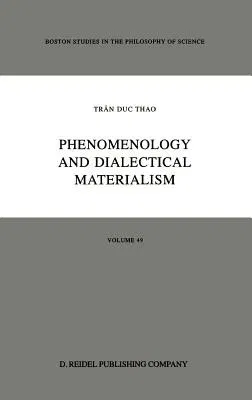Trân Duc Thao
(Author)Phenomenology and Dialectical Materialism (1986)Hardcover - 1986, 31 December 1985

Qty
1
Turbo
Ships in 2 - 3 days
In Stock
Free Delivery
Cash on Delivery
15 Days
Free Returns
Secure Checkout

Part of Series
Boston Studies in the Philosophy and History of Science
Part of Series
Boston Studies in the Philosophy of Science (Hardcover)
Print Length
244 pages
Language
English
Publisher
Springer
Date Published
31 Dec 1985
ISBN-10
9027707375
ISBN-13
9789027707376
Description
Product Details
Book Edition:
1986
Book Format:
Hardcover
Country of Origin:
US
Date Published:
31 December 1985
Dimensions:
24.38 x
16.87 x
2.18 cm
ISBN-10:
9027707375
ISBN-13:
9789027707376
Language:
English
Location:
Dordrecht
Pages:
244
Publisher:
Series:
Weight:
598.74 gm